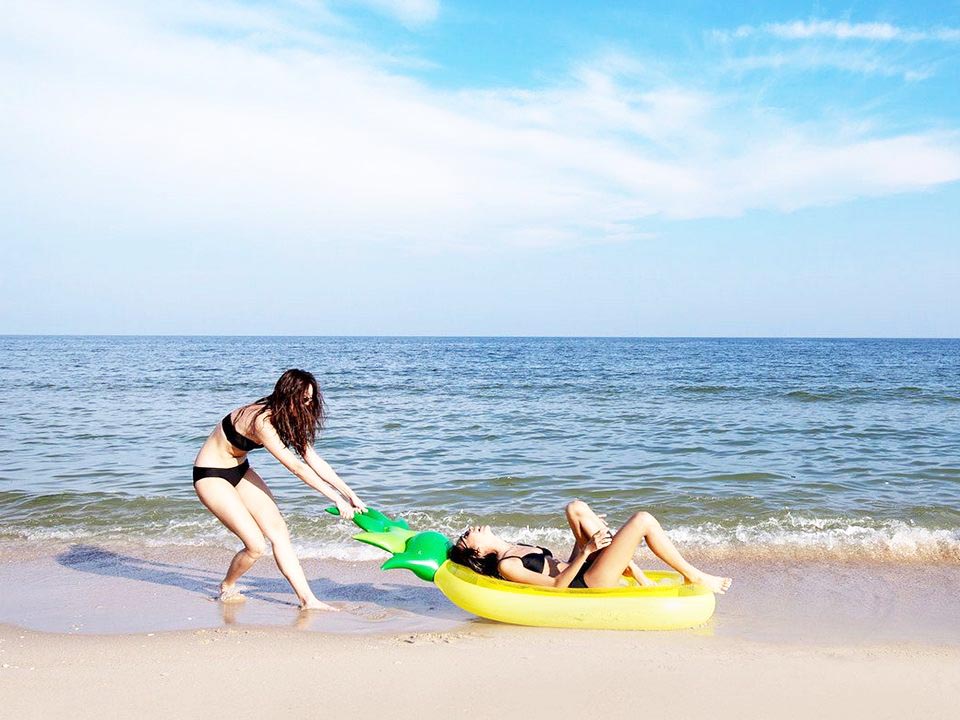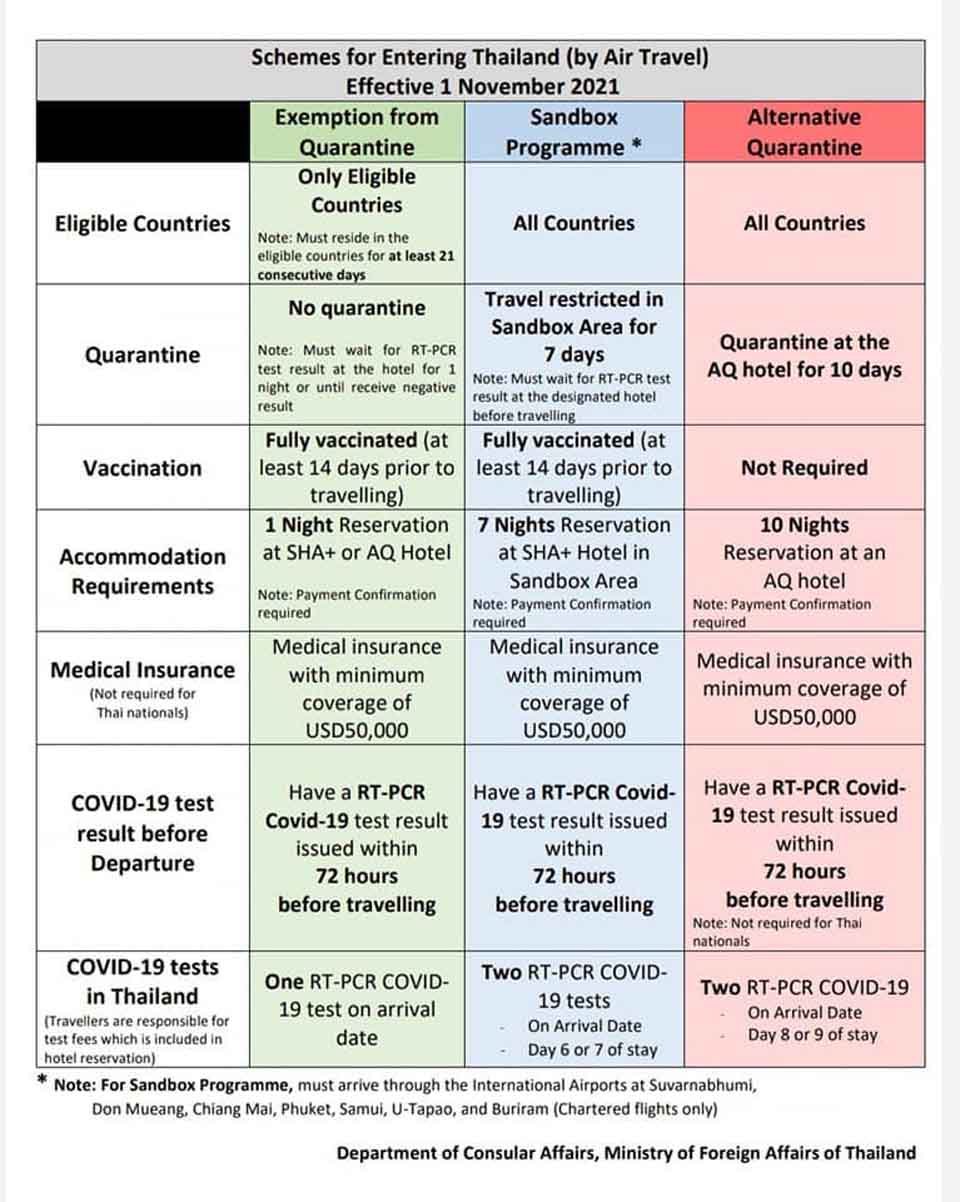
Thailand will reopen for fully vaccinated tourists from 45 countries and Hong Kong Nov. 1, although not, as promised, “without quarantine”, as a single night at a certified hotel still will be required.
The Foreign Affairs Ministry late Thursday released the long-awaited details of coronavirus “low-risk” countries whose citizens can qualify for the “quarantine-exempt” entry that is not technically quarantine-exempt.”
Eligible are fully vaccinated arrivals from Australia, Austria, Bahrain, Belgium, Bhutan, Brunei Darussalam, Bulgaria, Cambodia, Canada, Chile, China, Cyprus, Czech Republic, Denmark, Estonia, Finland, France, Germany, Greece, Hungary, Iceland, Ireland, Israel, Italy, Japan, Latvia, Lithuania, Malaysia, Malta, Netherlands, New Zealand, Norway, Poland, Portugal, Qatar, Saudi Arabia, Singapore, Slovenia, South Korea, Spain, Sweden, Switzerland, United Arab Emirates, United Kingdom, United States and Hong Kong.
Travelers must have been in those countries for at least three weeks before departing.
While the Foreign Affairs Ministry says that it November will also see the end of the hated Certificate of Entry process for most travelers, the “Thailand Pass” website that will replace the CoE will still require travelers to provide much of the same paperwork.
Thailand Pass is not available yet, although the MFA said previously it planned to have it available on Nov. 1 although website crashes, data leaks and delays are more the rule than the exception when it comes to Thailand government IT.
According to the information table released with the list of countries, tourists, before flying, must provide proof of a booking at an “SHA+” or “Alternative Quarantine” hotel for at least one night. Such hotels have fully vaccinated staffs and are partnered with hospitals to allow them to administer coronavirus tests and transport passengers in “sealed routes” with employees in full personal-protective equipment.
Still, one night in an overpriced hotel is better than seven or 14 nights, which will still be the norm for the unvaccinated or those wanting to come to Thailand from countries and territories not on the “low-risk” list, which strangely excludes Taiwan – which hasn’t had more than 20 cases in a day for two months.

For regional travelers, Cambodia and Malaysia are on the approved list, although travelers will need to arrive by air, not land border. Laos and Vietnam are not on the list, nor is the Philippines.
Also still required for submission to Thailand Pass will be proof of Covid-19 insurance coverage, although, as foreshadowed by the Public Health Ministry, the coverage required has been halved to $US50,000.
Other requirements for entry are as expected: A RT-PCR coronavirus test 72 hours before flying and a single RT-PCR test within 24 hours of arriving. It’s notable that the price of the test is now included in the SHA+/AQ hotel rate.
The information released after 9:30 p.m. Thursday doesn’t answer all questions, however. The biggest of those is what those traveling with unvaccinated children have to do, and whether any hotel exemption is allowed for expats, although that seems increasingly unlikely.
All of the details released – and not yet released – by the MFA are not final until approved by the Center for Covid-19 Situation Administration and Cabinet and published in the Royal Gazette. The CCSA is expected to meet and approve the plan today.
Prime Minister Prayut Chan-o-cha, who broke news of the 46-country list on his Facebook page, said the decision to increase the number of eligible tourists from the 10 he originally conceived was done to jolt the tourism industry back to life.
“If we wait until everything is fully ready, we’ll be too late. Besides, tourists may choose to go elsewhere,” read the post.
“This is a risk we must take. I think, like other countries, Thailand is now better equipped to deal with the risk. And we need to learn to live with it,” Prayut said.
The original version of this story was published in the Bangkok Herald, a Pattaya Mail partner.
 |
 |
 |





